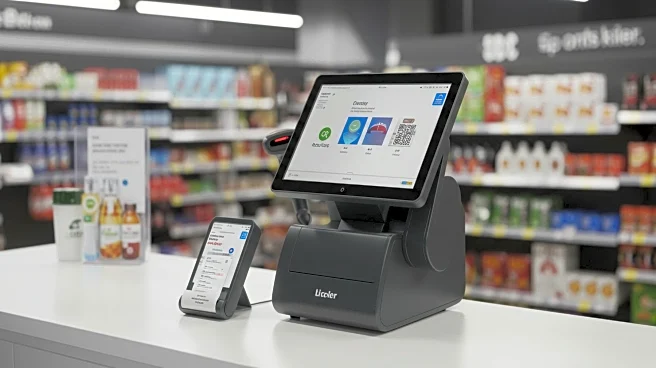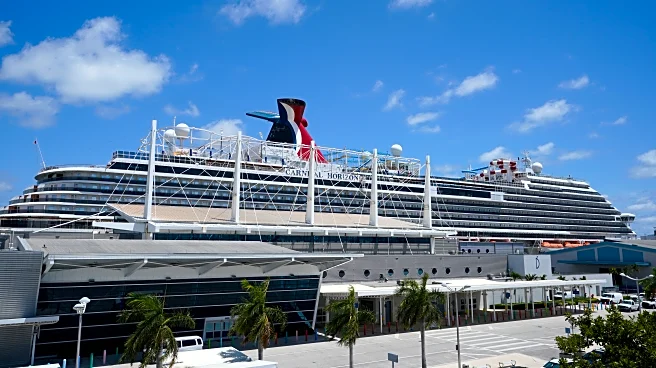What's Happening?
Retail technology is advancing rapidly, with innovations such as AI-powered personalization and composable commerce platforms. However, the challenge lies in integrating these technologies to create a seamless customer experience. Retailers are facing increased consumer expectations and economic pressures, necessitating smarter and faster decision-making. According to KPMG's Retail Outlook 2025, many retailers find that previously 'best-in-class' technologies are now inefficient due to overlapping features and limited interoperability. The focus is shifting towards creating a connected view of customer operations and inventory, requiring robust integration and strong data foundations. Physical stores are also transforming into connected hubs with technologies like mobile POS and RFID inventory tracking, demanding real-time data accuracy and secure payment integration.
Why It's Important?
The integration of retail technology is crucial for meeting rising consumer expectations and maintaining competitiveness in a tightening economic environment. Retailers who successfully integrate their systems can enhance customer experiences, streamline operations, and improve inventory management. This shift towards integration can lead to significant cost savings and operational efficiencies, benefiting both retailers and consumers. As technology continues to evolve, retailers must prioritize integration to avoid costly inefficiencies and ensure that their investments contribute to a cohesive customer experience.
What's Next?
Retailers are expected to continue investing in integration strategies, focusing on real-time inventory visibility, AI-driven personalization, and payment optimization. Events like the RetailTech Marketplace provide opportunities for retail leaders to explore solutions and validate strategies with industry experts. As technology advances, retailers will need to evaluate infrastructure readiness and ensure that store innovations can scale without compromising performance or compliance.











